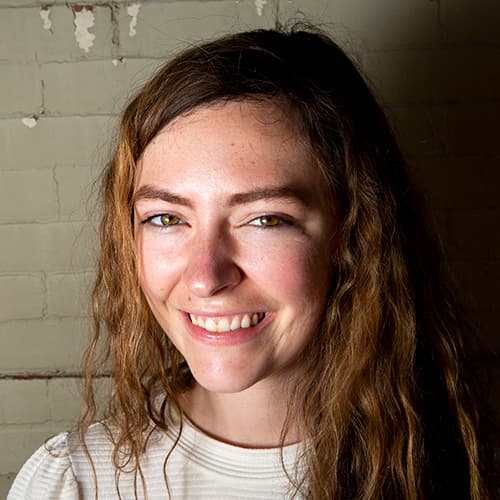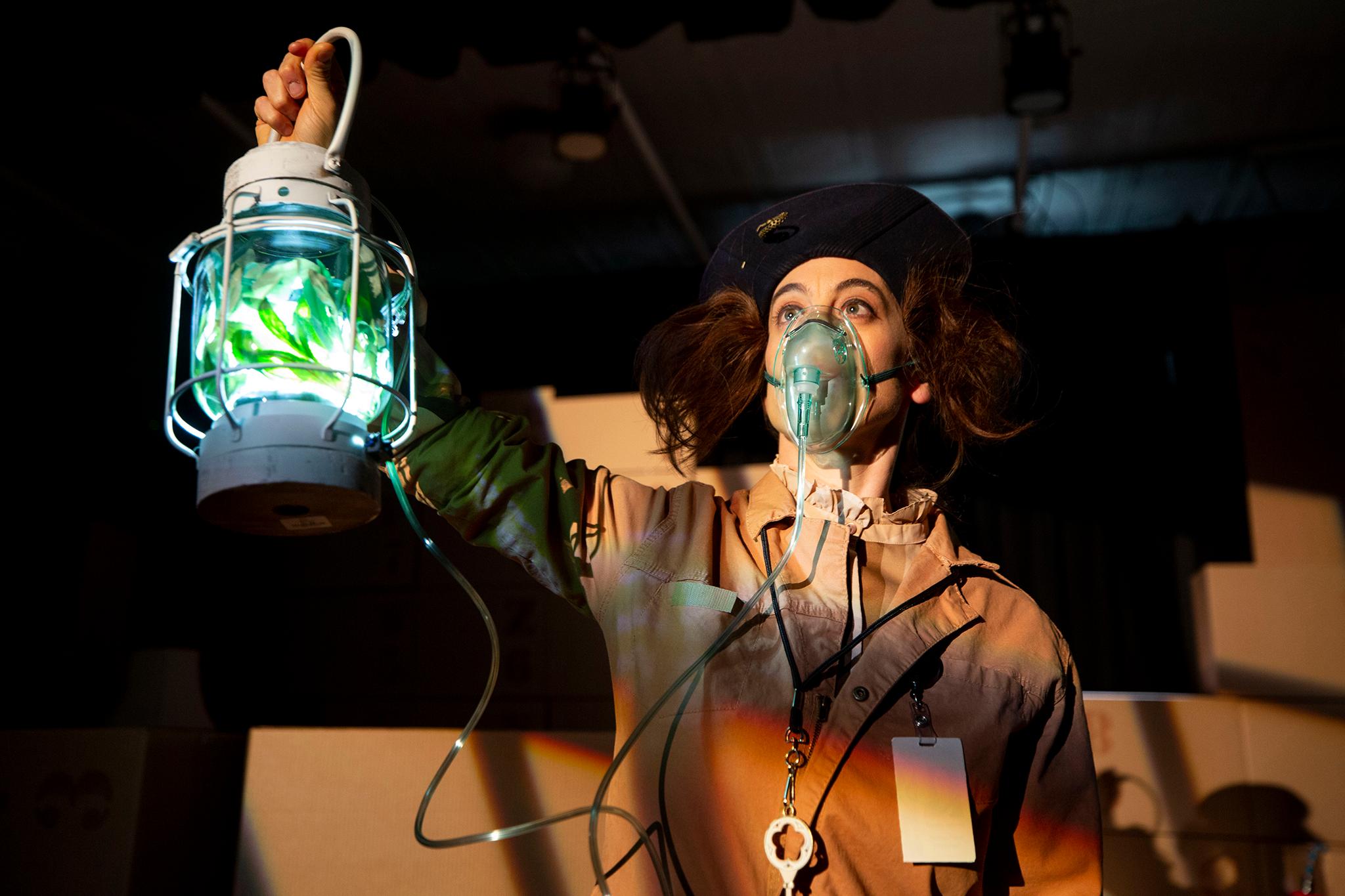Earlier in the pandemic, Meghan Frank and Buba Basishvili, a married couple and founders of the nonprofit physical theatre group Theatre Artibus, came across the website for an initiative called Earth's Black Box.
A black box on a plane is a device that records the data of a flight while the plane is in the air. The idea behind Earth Black Box, then, was to record data about our society ahead of an imminent "crash" of the Earth itself.
"The website says something like 'brace for impact,'" Frank said. "Which we thought was both really hilarious and also chilling at the same time."
They couldn't quite figure out if the project was real or a PR hoax. The website hints that an announcement is forthcoming, that the box's construction will be completed in "early 2022." In the end, they were just fascinated by the very idea of it. To them, it seemed to interrogate what the legacy of the human race would be after we're gone. At the same time, it seemed a sort of vanity project to record all of human history for whomever or whatever comes next, to attempt to understand and be able to cull through thousands of years of raw data, to explain what led to our demise, who is to blame and what might have been done differently.
"We were really interested in, like, how does that actually work? And who operates it? And how long could it operate?" Frank said.
Through Theatre Artibus, Frank and Basishvili put on original theatrical productions with an emphasis on theatre of the body and community engagement, staged out of Savoy Denver, a historic performance space in Five Points. Earth's Black Box gave them an idea for a new Theatre Artibus show: an apocalyptic slapstick comedy designed to (hopefully) engage audiences in conversations about, of all things, climate change.
"We'd always been interested in trying to create a comedy about climate change," Frank said. "Not because we think it's an issue that should be taken lightly. But we both really love and believe in the idea that comedy sometimes is a really great way to talk about really difficult issues."
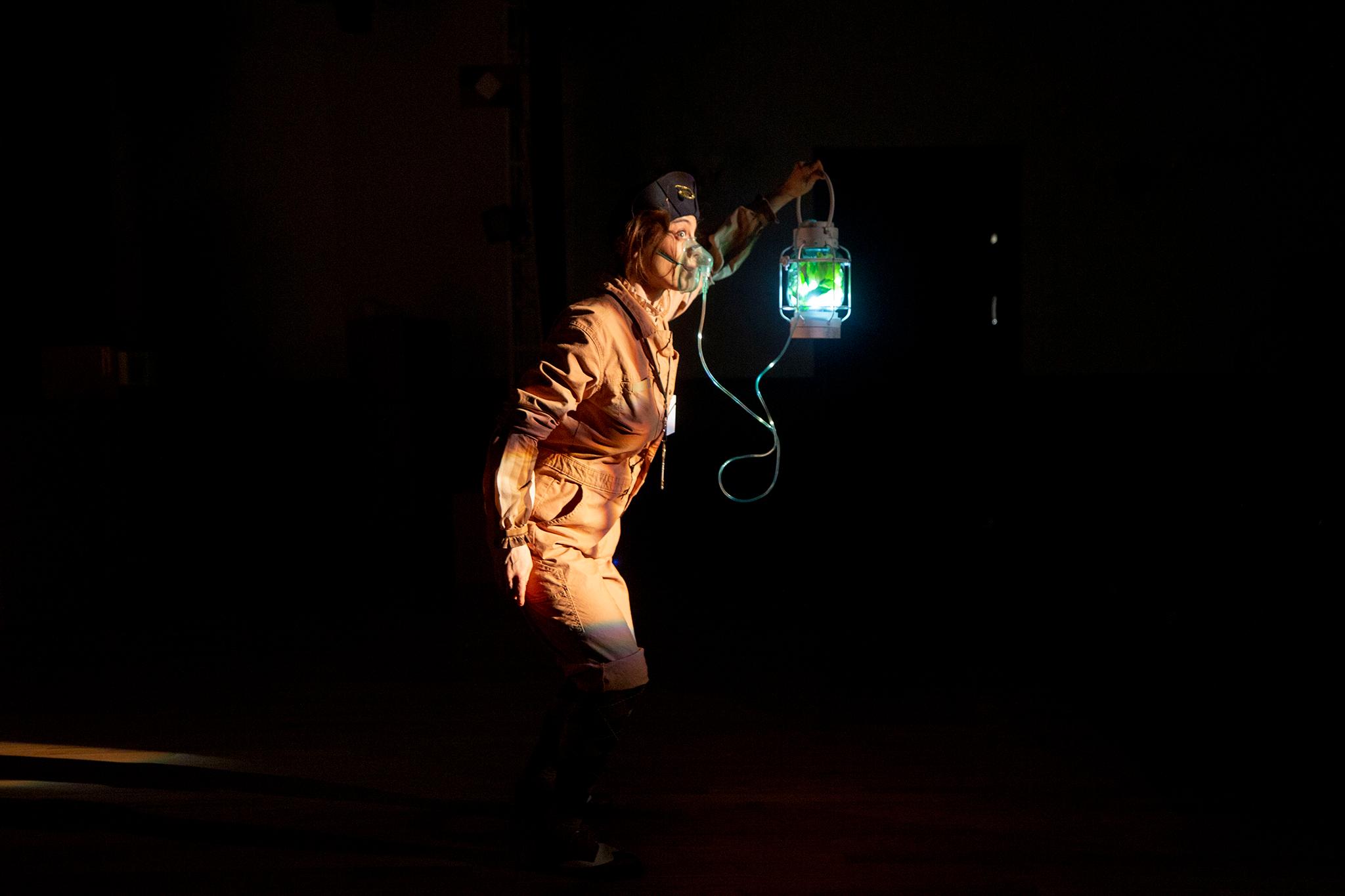
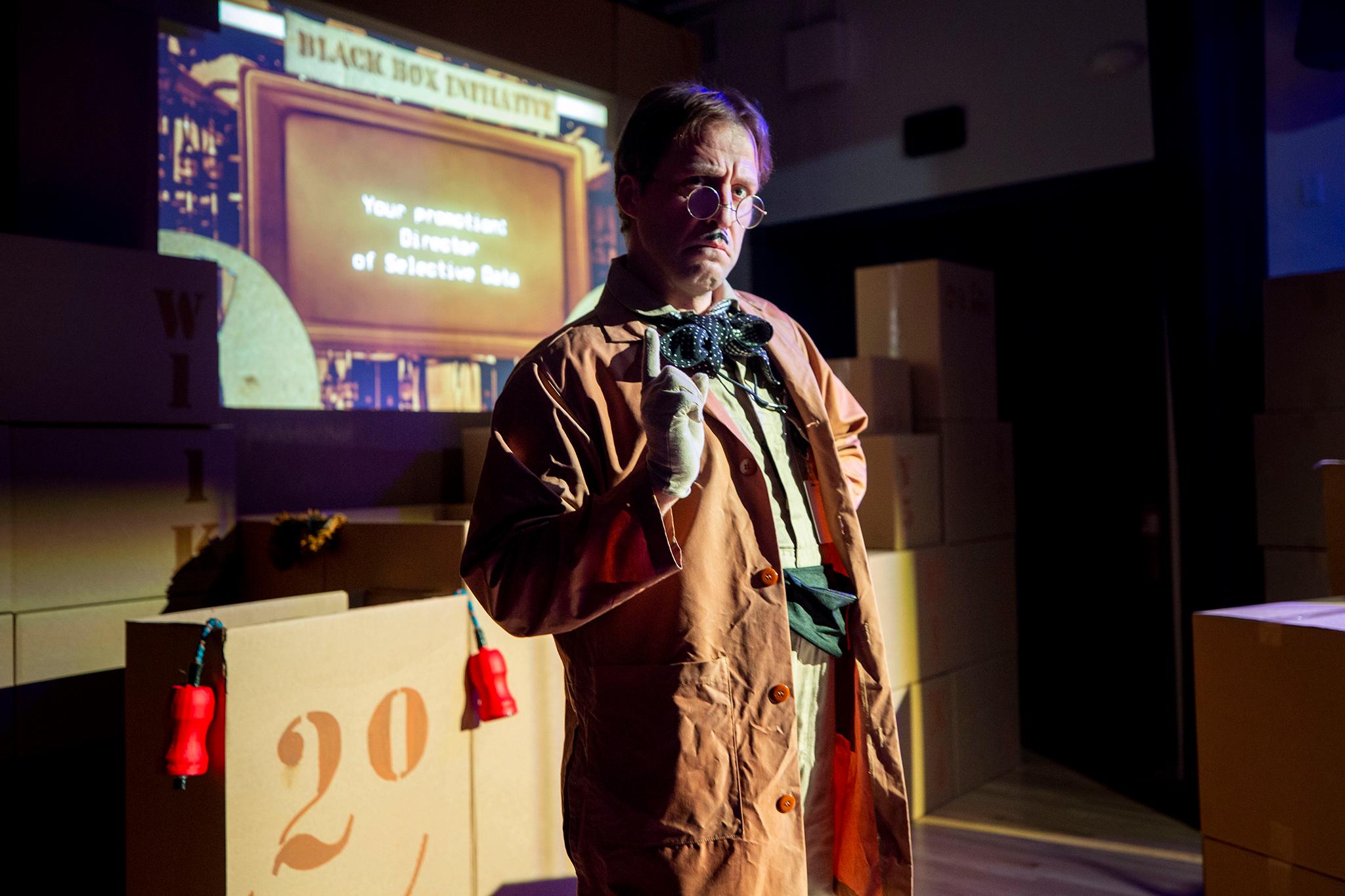
They came up with an idea for a story: two entry-level data pushers who are given the responsibility of overseeing Earth's black box, inboxing the Earth's data in anticipation of the planet's imminent destruction.
"We started to think a little bit about like, well, what is real? What is a fact? What is one's truth, versus the truth," Frank said. "It's an absurd comedy in itself in some ways. So I think that's kind of how we went about it, realizing that if we just keep arguing about what is a fact, the Earth is going to kind of be burning next to us, and we're going to let it happen because we're arguing about who's right."
This month, Theatre Artibus will debut INbox, an original sci-fi play wrapped in a silent comedy that explores questions about what our legacy will be and who gets to decide it.
The show was written in the style of classic silent films, nodding to the slapstick comedy of actors like Buster Keaton, Harold Lloyd and Charlie Chaplin. The actors -- Frank and Basishvili -- communicate the narrative using their bodies, with the aid of sound effects. Music plays underneath their performance, as it would in a silent film.
Frank and Basishvili play two data pushers from different countries. The set, designed by INCITE Colorado, resembles stacks of cardboard boxes in a warehouse space, making physical the concept of data storage. The actors literally place objects in the boxes to store away in Earth's Black Box to be reopened and examined by post-human societies. Behind them is a giant computer, which functions as a sort of third character. It gives the data pushers instructions and fills the role title cards do in silent films, conveying the dialogue via text and helping to fill in the gaps of the narrative.
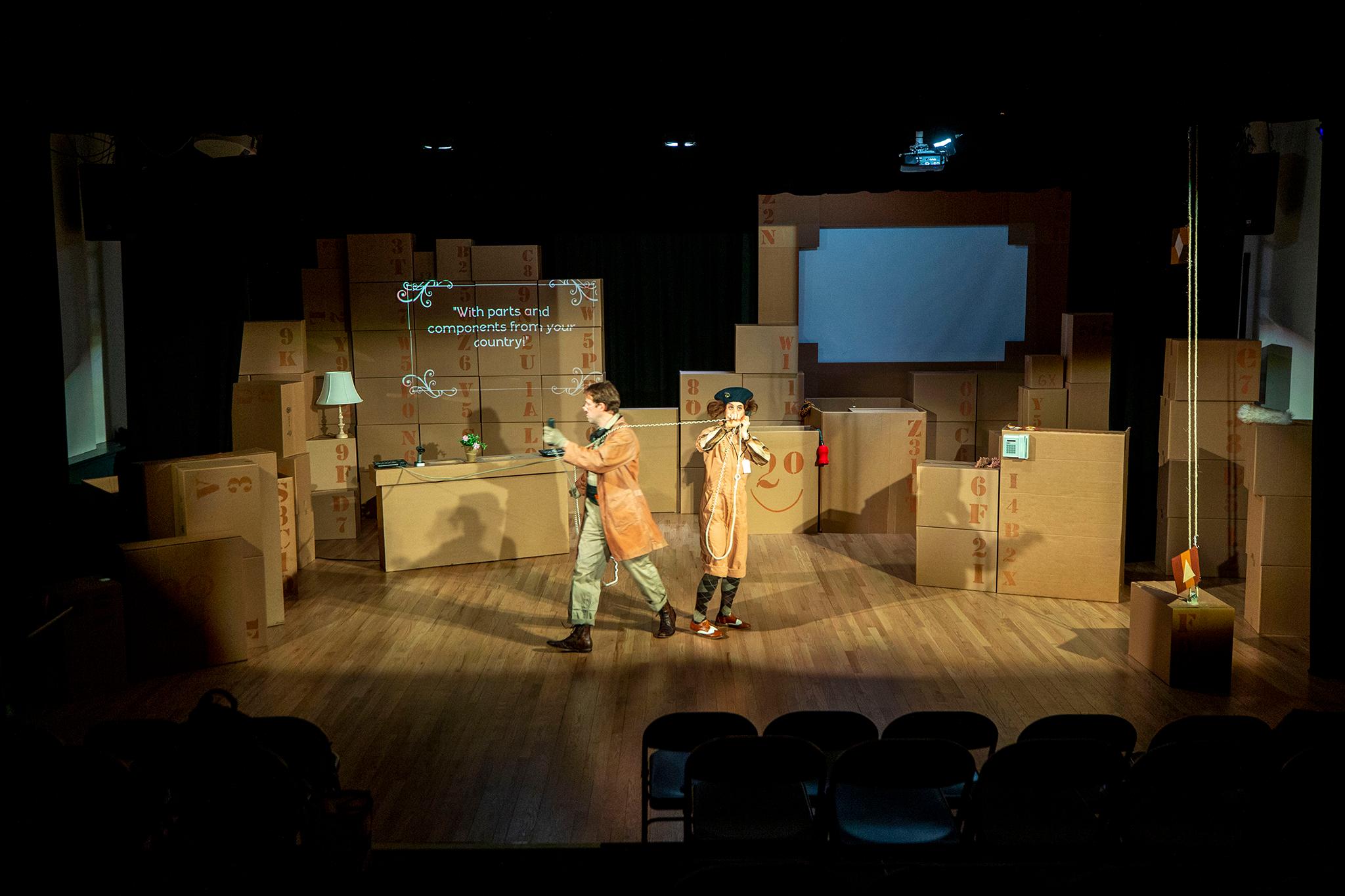
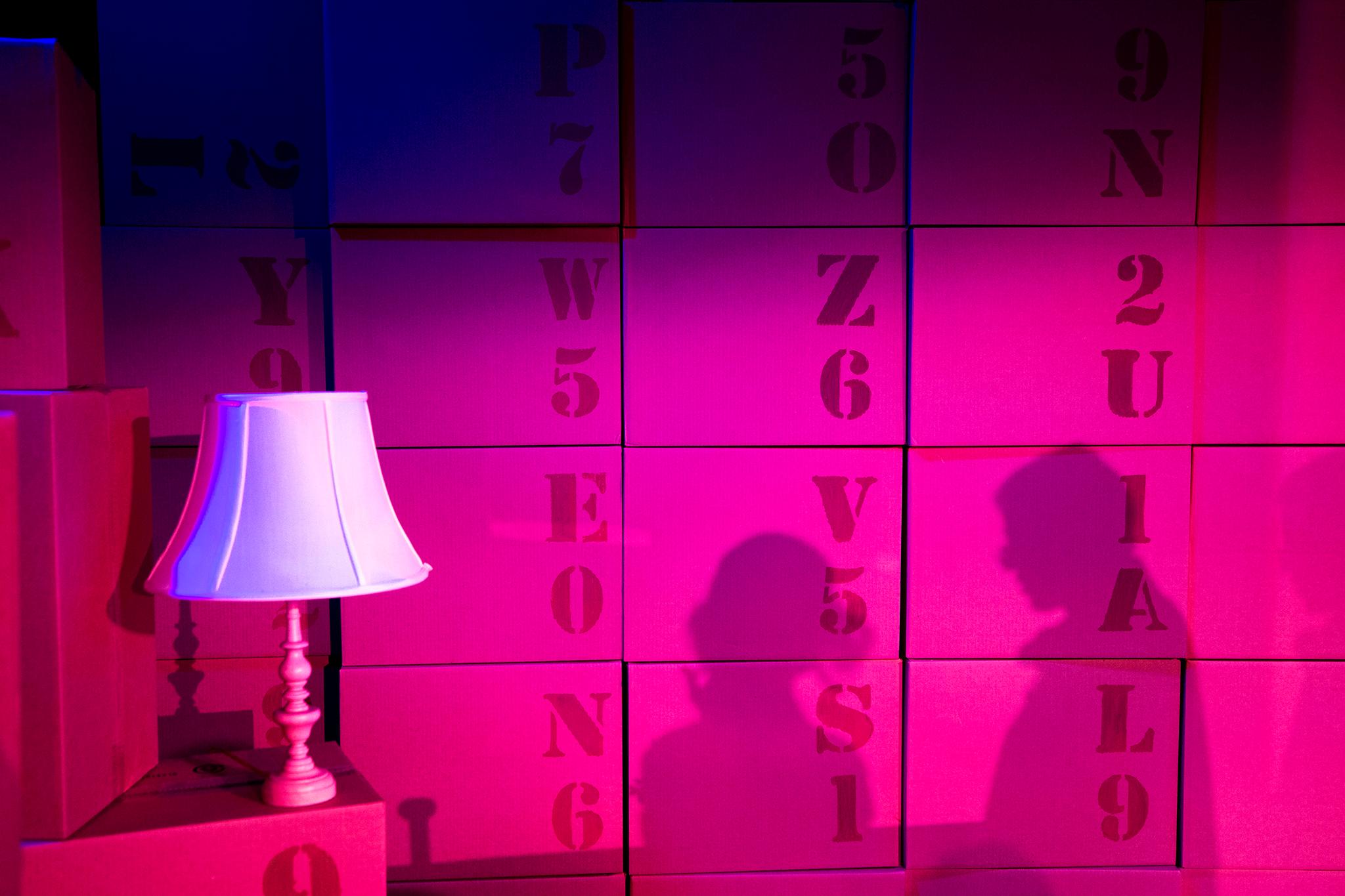
One reason they opted for a silent comedy was to pay homage to the Savoy itself, a performance hall that was built in the late 19th century and boasts a vast, high-ceilinged ballroom space and a bar where guests can order drinks before or after shows. INbox is a callback to the silent film era in which the Savoy was born, to the Victorian, turn-of-the-century or Vaudevillian age.
"We also are really interested in how the body speaks," Frank said.
Physical theatre offers a new way to "talk" about climate change, to approach the difficult subject in a different way, she said.
"What are we not doing about climate change right now? We're really having a struggle to talk about it," Frank said. "I think there is a little bit of that in there, as well. It's like, why can't we just talk to each other?"
Basishvili said that like dance, physical theatre allows people to be immersed in a performance, to feel the narrative in a tangible way without being distracted by the "practical mind." It's a way to connect viscerally with a complex or abstract topic that people otherwise might have difficulty engaging with.
"It's immersion," Basishvili said. "You're getting connected to the audience, you're getting connected to each other. Even though people are not talking to each other, when they're watching in a theatre, magic happens. People's heartbeats often get synchronized." (There are actual studies about this. One 2017 study by University College London found that audience members' hearts synched up while watching a theatrical production.)
Once you experience a subject in an immersive way, Basishvili said, it can leave an impression on you even after you leave the theatre.
"Feeling is immersion," he said. "When you're immersed in these feelings, in the environment, and you get used to feeling it, then you can't stay a part of the things which are really disturbing. You cannot leave a poop bag on a trail when you go on a walk."
INbox uses slapstick humor to convey the frustrations of attempting to have conversations about climate change.
"There's a lot of miscommunication and confusion," Frank said of the play. In one bit, the actors get wrapped up in a telephone cord, a confusing situation that turns into a dance Frank and Basishvili call the "tangle tango." In another bit, the computer shows them a series of iconic images. They are tasked with deciding which of these images to discard forever and which to preserve in the black box.
"Do we keep Big Bird or not? Should the queen of England be remembered?" Frank asks.
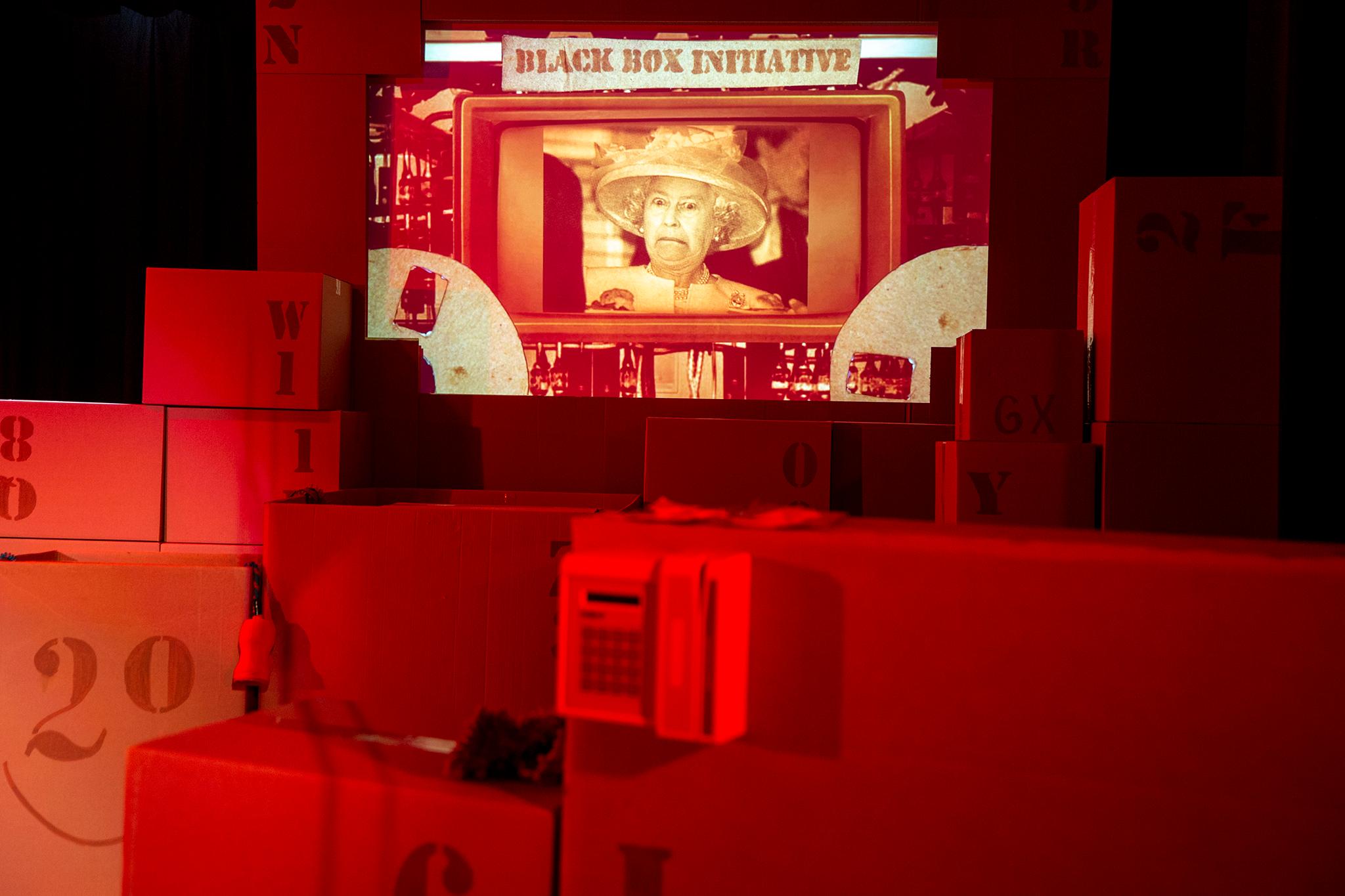
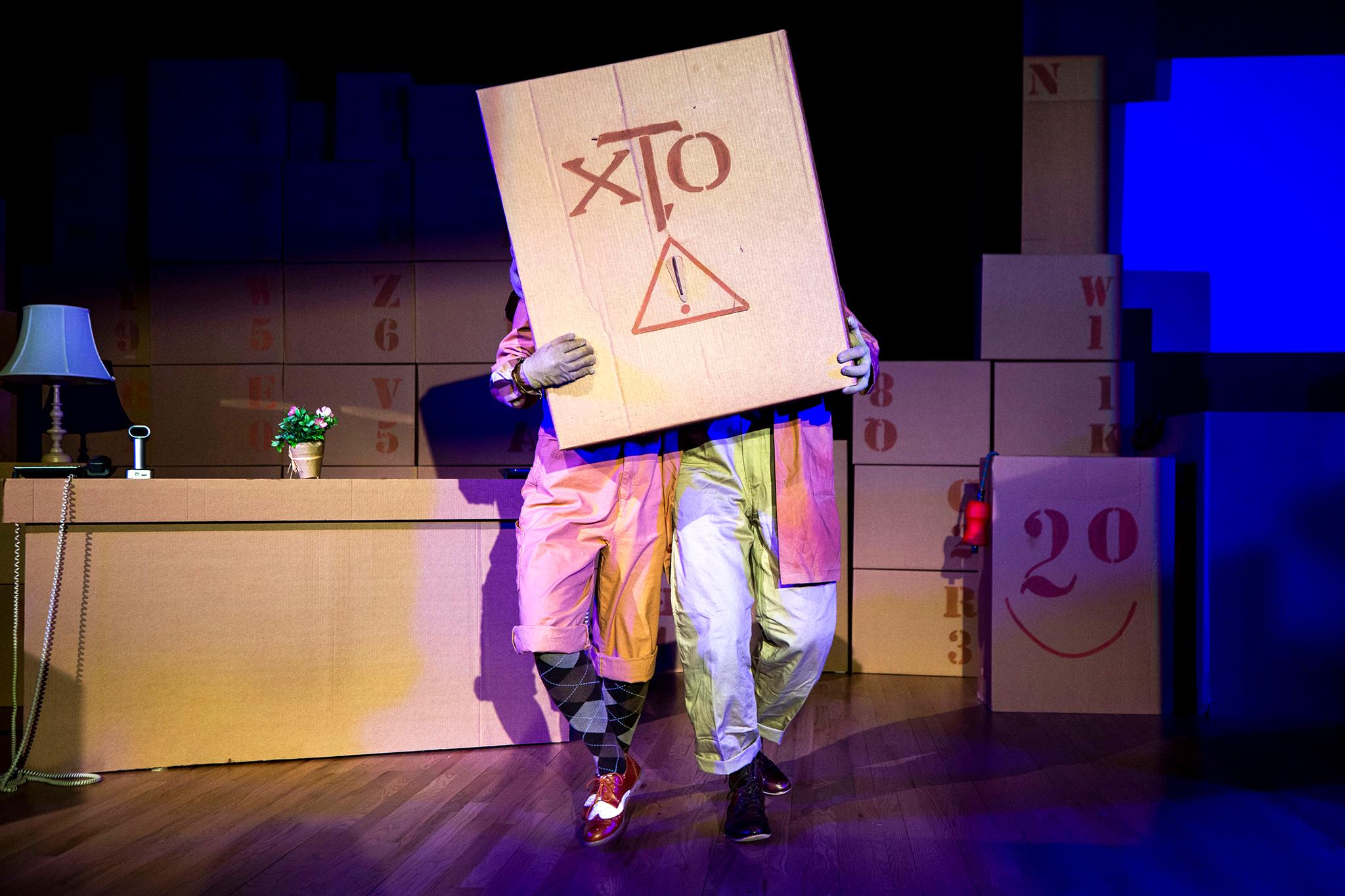
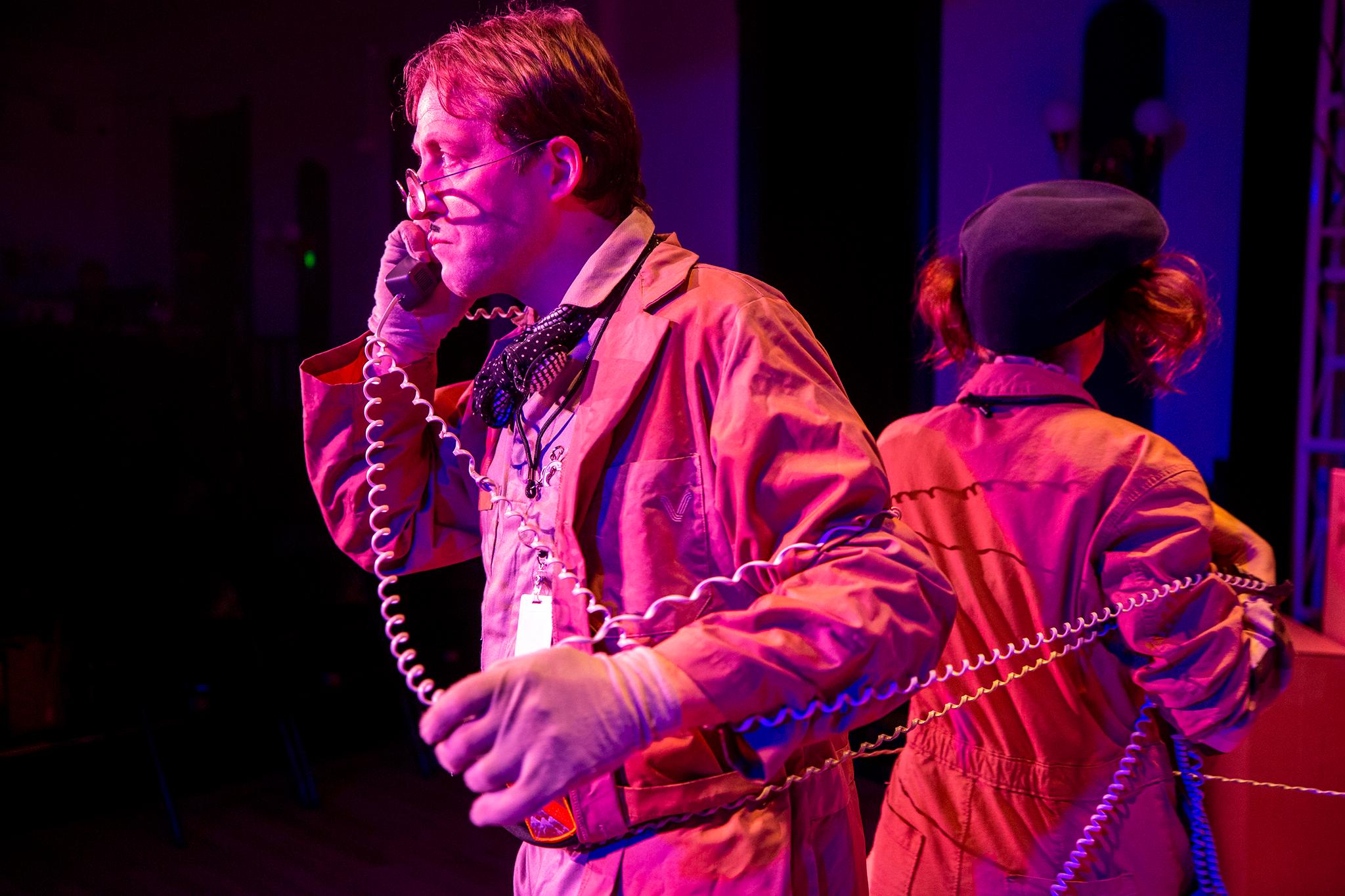
Some bits veer into the absurd. In one scene, Frank's character begins to feel lonely on a shift. Suddenly one of the boxes becomes a person, and a romantic montage ensues. She and the box date and then get married. The sequence ends with the box's death.
"By the time it gets to where it's going to go, it's just a box again. And then I put it in the archives," she said.
Didactic conversations about climate change may cause people to feel shame or to put their guard up. Franks said approaching these conversations through a comedic lens may make them more comfortable.
"Oftentimes we talk about comedy feeling like a mirror to someone, that once they can laugh at themselves, then they can begin to understand themselves in the world," Frank said. "You can really get at something in a different way that doesn't feel like shame. And it doesn't feel like pointing the finger, but it feels like the audience goes, 'Aha, I see that, I get that, that resonates with me.' And there's something about comedy that I feel like actually helps us delve into more serious topics because otherwise, it's a lot of opinions in a room. And if you can find a way to laugh about it, then maybe you can find a way to discuss it as well."
"It's funny that laughter and crying really kind of come from the same place," Franks added. "It's all really about breath as well. You're getting more oxygen in your lungs. Which creates an ability to open and be receptive and responsive. "
Frank says that the arts can play a role in discussing topics like climate change by creating space for conversation and imagination.
"Those two things in combination can really, hopefully, create opportunities to begin to think more innovatively about what can be done," she said. "If people can be in a room together, even if they have very differing opinions about the same fact, there's something in that connection that creates for progress."
She said there can also be pragmatic applications to the thinking that emerges from arts spaces. For example, INbox is working with the RiNo Art District to plan a companion event, a post-show discussion about the history of the Platte River and how to preserve it.
"We don't have to provide answers. We just have to create the environment where we talk, where we get provoked by the thought," Basishvili said.
INbox will run at Savoy Denver, 2700 Arapahoe St., from March 4-27. Proof of vaccination is required. Tickets are $25 general admission, and $19 for seniors, students and industry workers. You can also pay $48 for a "Great Neighbor" ticket, which includes your admission, a glass of wine and a free ticket to a community member otherwise unable to afford a ticket.
